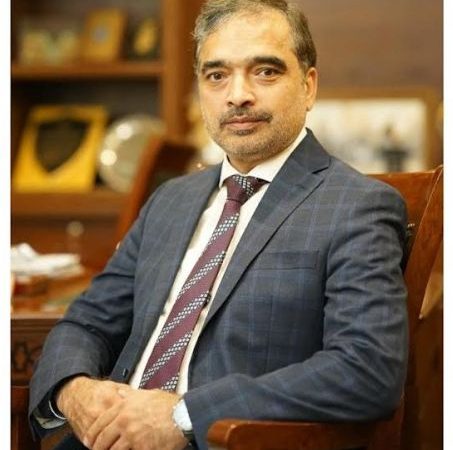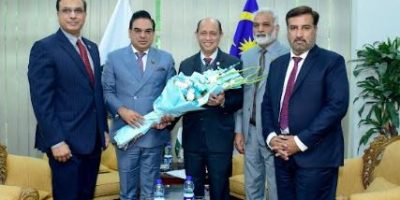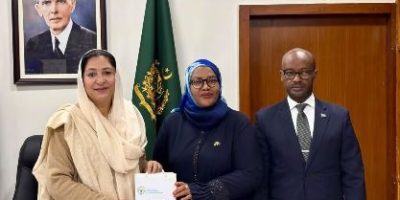PIAF for clear roadmap for economic revival as financial crisis hit trade, industry

ISLAMABAD, MAR 5 /DNA/ – While demanding a clear roadmap for the revival of economy, the Pakistan Industrial and Traders Associations Front (PIAF) on Sunday termed the present financial crisis as a nerve-shattering for trade and industry.
There was a consensus among the participants of a meeting presided over by the PIAF chairman Faheem ur Rehman Saigol and attended by other office-bearers that there was a lack of coherence in the government policies and things on economic front went shaky instead of moving for the last several months.
Faheem ur Rehman Saigol said that volatile exchange rate, unprecedented hike in markup rate, repeated increases in electricity rates, gas shortage, price spiral, mismanagement and bad governance have now become the hallmarks of the government.
He said that massive fall of rupee value continued to damage the economy, as the rupee witnessed a huge depreciation; one of the highest devaluations of local currency in Pakistan’s history.
PIAF Chairman observed that besides increasing exports and controlling imports the government will have to take administrative measures, as a large demand of cash dollars are seen in the market.
He argued that this devaluation of the currency was dictated by the IMF through prior actions and it has nothing to do with macroeconomic fundamentals. He said that there was a complete breakdown of economic policymaking, as the country’s fiscal policy had become subservient to monetary and exchange rate policies.
He said that the monetary tightening and exchange rate depreciation resulted in higher inflation, public debt and debt servicing. The empirical evidence showed that the one percent monetary tightening hiked the inflationary pressure by 1.3 percent in the case of Pakistan, he added.
He said that the US dollar continued to rise against the rupee, reaching a record high. The government needs to devise a strategy on war-footing to increase foreign investment in Pakistan so as to stop the upward trajectory of the dollar, he added.
Exports went down quantitatively while the situation of new investment remained very bleak during the year, they observed adding that the Monetary Policy Committee of the State Bank of Pakistan has raised the key interest rate by 300 basis points, taking it to 20% — the highest level since October 1996. The government can blame the IMF or some unfriendly foreign powers for its economic predicament if it wants. But it cannot deny that it is in hot water today due to its misplaced confidence that it could deviate from the IMF program and turn to friendly countries for its dollar requirements to avoid defaulting.
Nearly three months after Finance Minister Ishaq Dar refused to be dictated to by the IMF, these countries also seem to be siding with the lender, providing Pakistan only enough to keep it going until the bailout loan is finalized. With a large credibility gap and trust deficit exacerbated by the ongoing political drama in the country, it is foolish to expect them to step up to help us in a big way without the IMF on board.
The Fund is now showing further strictness on issues such as the exchange rate, interest rate, external financing gap and the permanent debt-servicing surcharge on electricity. It must be pointed out that some of the new IMF conditions, such as linking interest rates with headline inflation and the imposition of permanent debt surcharge on electricity, seem quite unreasonable.
He appealed the IMF to show some elasticity on these conditions to prevent the country’s economic crisis from getting out of hand.
He said power tariff registered an upward trend manifold and due to this single reason, Pakistani merchandise failed to get due appreciation in the international market and the neighboring countries made huge gains.
Calling for bringing down the rate of interest, PIAF chairman said the State Bank of Pakistan should focus on banking spread that was intolerable and pushing the equity away from the reach of business community.
He urged the policy makers to concentrate on increasing tax-to-GDP ratio which was the lowest in Pakistan in the region. The PIAF leader warned if the government failed to take appropriate measures for economic revival, the trade and industry will face a complete shutdown, asking the government to convene a conference, taking the business community onboard.
Related News

Pakistan, Malaysia target $4 billion trade, eye halal & IT Collaboration
ISLAMABAD, JAN 19 /DNA/ – Dato Muhammad Azhar Mazlan, the Malaysian High Commissioner to Pakistan,Read More

Rwanda, Pak vow to strengthen cooperation in education, IT
A key highlight of the meeting was the reaffirmation of their strong resolve to advanceRead More


Comments are Closed